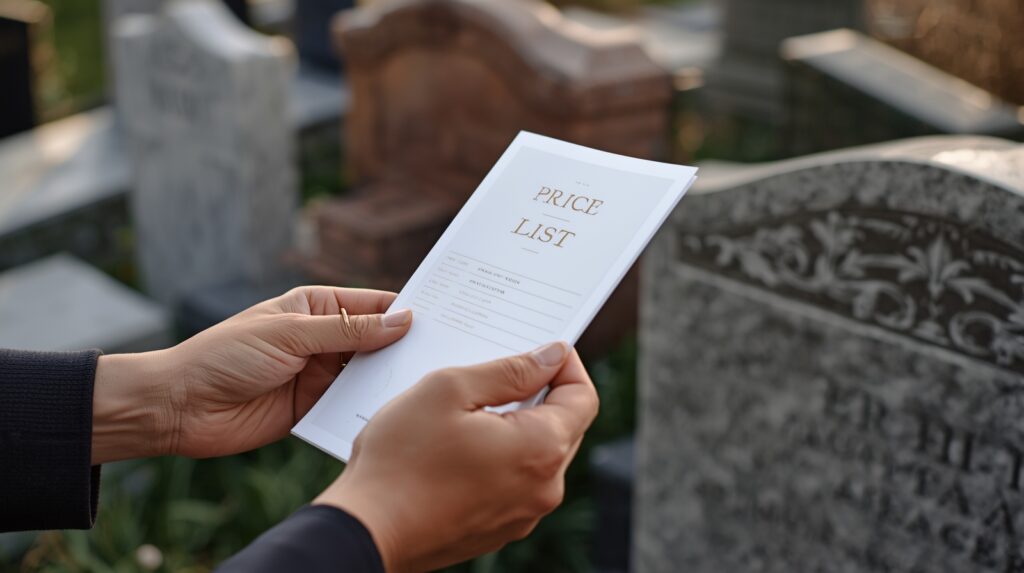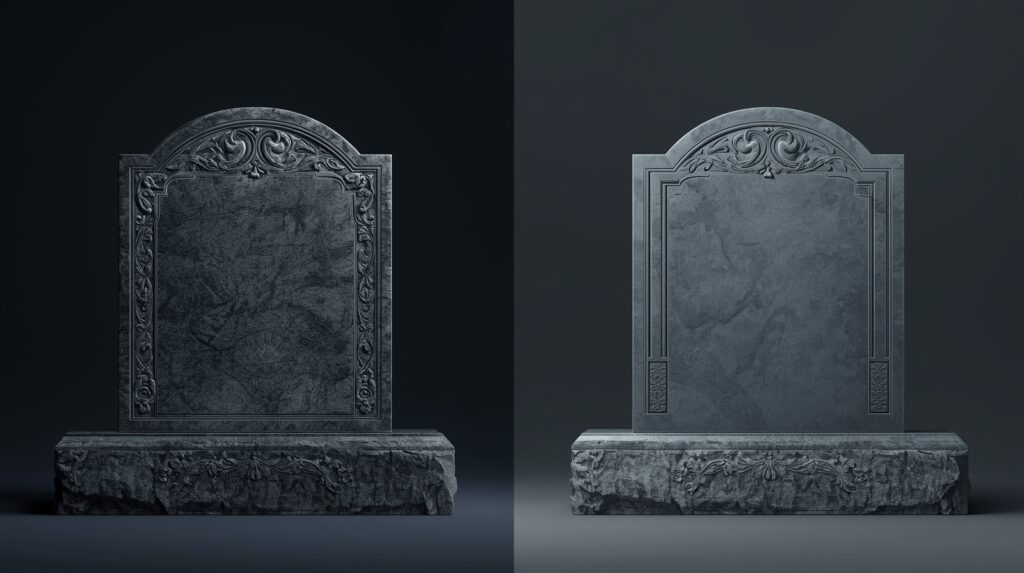A Consumer Guide To Dealing With Cemeteries

If you are in the market for a grave marker, we hope you will find this site a must-read. We aim to help you save a substantial amount of money by guiding you through the marketing maze that cemeteries and funeral homes have built. (They try their best to make it a full-fledge trap, but, thankfully, it is still just a maze.) Our mission is one of integrity and ethics in the memorial industry, so it’s important we tell you from the start that this site is written by the staff of Memorials.com, a company that sells grave markers and many other memorial products. We are clear about that because our company’s philosophy is, simply put, honesty. We believe that, if we can help you negotiate an industry notorious for playing cruel business games with vulnerable customers, you will decide to put your trust in us for your memorial needs.
Now, all that said, we know you might still be skeptical of our purpose with this site. We are, after all, a memorial product retailer who is in business to make profit, and that is an unlikely source for reliable consumer journalism. So that is why we want you to understand our own interest in giving you top quality information.
See, we are in many ways, in the same vulnerable position as consumers. Generally speaking, the memorial industry is not big on outsiders like us stirring competition that lowers prices on things like headstones, caskets and urns. That is why, for example, the three largest casket manufacturers in America refuse to make their products available to sites like ours that will surely offer them at prices substantially lower than funeral homes. That is also why some cemetery sales people will do all they can to persuade you that buying a grave marker from a company like ours, at prices much lower than theirs, will have a disastrous outcome.

Companies like ours take full advantage of Federal Trade Commission rules that break up monopoly-like tactics of the memorial industries biggest players and keep prices low by enabling competition. But these rules were made despite significant political pressure from the well-funded industry lobby, and, accordingly, their enforcement can be spotty. There are also many cases in which the large companies may follow the letter of the law but not the spirit. In the case of grave markers, for example, they may document one disastrous experience one of their customers had with an outside source and then use that instance to convince future customers to be wary of all outside sources. Also, in the case of one of our own customers, a funeral home was more than happy to accept a casket that the family had purchased from us, but there was a catch: the home would not sign for delivery of the casket. Companies that deliver caskets are generally not able to say, exactly, when a given delivery will arrive. If you’re also considering moving a grave or relocating a loved one, see our guide on How Much Does it Cost to Move a Grave? for important information and tips. So that meant members of the family had to wait in shifts at the funeral home for almost entire business days to sign for the casket. If the funeral home had not been trying to persuade the family to buy one of its own, more expensive, caskets, staff members of course could have very conveniently signed for the delivery.

The bottom line is that funeral homes and cemeteries have been charging dramatically inflated prices for their funeral accessories for decades and, even with relatively recent laws designed to protect consumers, the practice continues through loopholes and downright defiance of the spirit of the laws. The solution to the problem is not necessarily more laws (although better enforcement of current laws would be a good step). No, what is needed is more vigilance among consumers. Those who are shopping for a grave marker or any memorial product must not fall victim to the sales tactics and abusive practices so prevalent in the business. Helping you get the best, most honest, price for what you want is our mission, and its why we maintain this site.
Great books that we recommend for everyone shopping for grave markers and other memorial products:
American Way of Death: Revisited by Jessica Mittford – The original version of this book in 1963 inspired the federal government to change many laws that worked against competition in the industry. But, by 1996, Mittford noticed that the industry had not changed as significantly as she had hoped. This “revisited” book makes us wonder if, in 2008, it might be time for yet another revision. (Unfortunately Mittford died in 1996 just as she was finishing this book, so any more revisions will be up to someone else.)
Profits of Death by Darryl J. Roberts – In this book Mr. Roberts, a lifelong insider in the funeral home and cemetery businesses exposes many of the abusive sales and marketing tactics that he saw (and even practiced) during his career.
